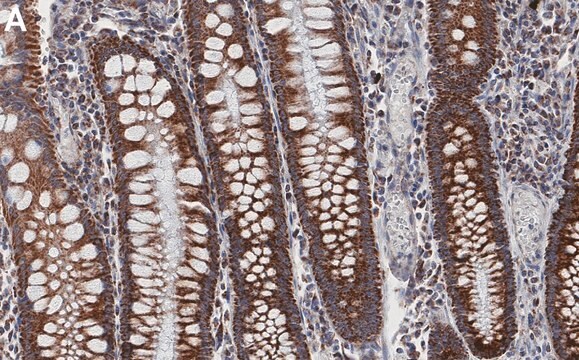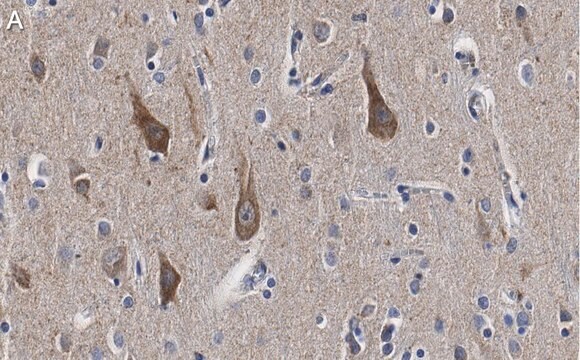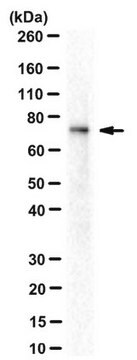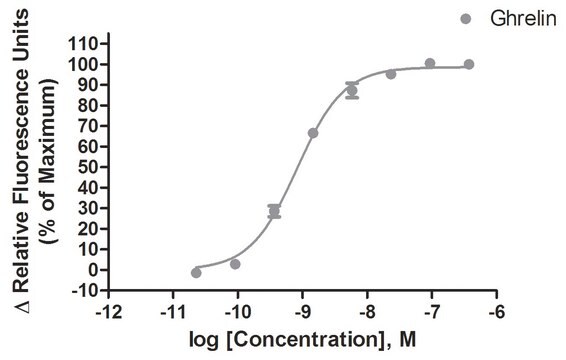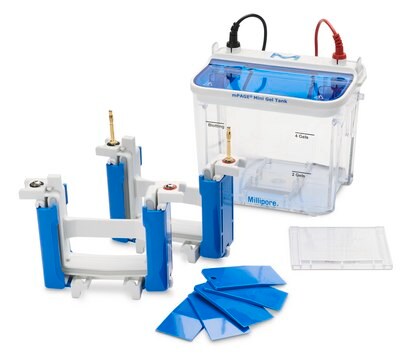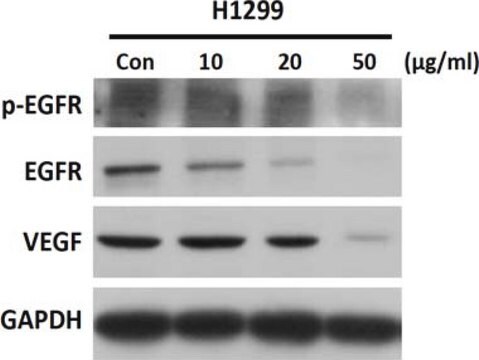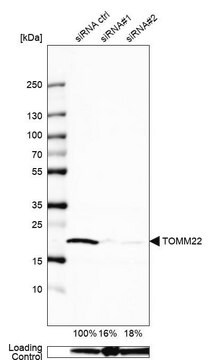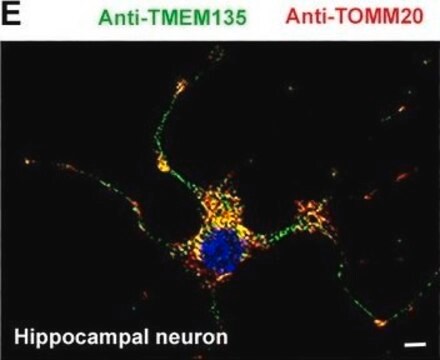General description
We are committed to bringing you greener alternative products, which adhere to one or more of The 12 Principles of Green Chemistry.This antibody is Preservative-free, produced without the harm or sacrifice of animals and exceptionally stable to allow for ambient shipping and storage if needed and thus aligns with "Waste Prevention", "Designing Safer Chemicals" and "Design for Energy Efficiency".
Click here for more information.
ZooMAb® antibodies represent an entirely new generation of recombinant monoclonal antibodies.Each ZooMAb® antibody is manufactured using our proprietary recombinant expression system, purified to homogeneity, and precisely dispensed to produce robust and highly reproducible lot-to-lot consistency. Only top-performing clones are released for use by researchers. Each antibody is validated for high specificity and affinity across multiple applications, including its most commonly used application. ZooMAb® antibodies are reliably available and ready to ship when you need them.
Specificity
Clone 1K10 is a ZooMAb® Rabbit recombinant monoclonal antibody that specifically detects Target of Myb Protein 1 (TOM1). It targets an epitope within 17 amino acids from the C-terminal region.
Immunogen
KLH-conjugated linear peptide corresponding to 17 amino acids from the C-terminal region of human Target of Myb Protein 1 (TOM1).
Application
Quality Control Testing
Evaluated by Western Blotting in L6 cell lysate.
Western Blotting Analysis: A 1:1,000 dilution of this antibody detected TOM1 in L6 cell lysate.
Tested Applications
Western Blotting Analysis: A 1:1,000 dilution from a representative lot detected TOM1 in HepG2 and RAW264.7 cell lysates.
Affinity Binding Assay: A representative lot of this antibody bound TOM1 peptide with a KD of 1.3 x 10-6 in an affinity binding assay.
Immunohistochemistry (Paraffin) Analysis: A 1:100 dilution from a representative lot detected TOM1 in human liver and human kidney tissue sections.
Immunocytochemistry Analysis: A 1:100 dilution from a representative lot detected TOM1 in HeLa cells.
Note: Actual optimal working dilutions must be determined by end user as specimens, and experimental conditions may vary with the end user.
Target description
Target of Myb protein 1 (UniProt: O60784; also known as TOM1) is encoded by the TOM1 gene (Gene ID: 10043) in human. The TOM1 family of proteins is ubiquitously expressed in human tissues. Higher expression of TOM1 has been reported in skeletal muscle, heart, placenta, liver, and immune cells. It has a VHS domain (aa 20-152) at the N-terminus, a GAT domain (aa 215-303) in the central region, and a long C-terminal domain. It serves as an ESCRT protein that is involved in the initial steps of endosomal cargo sorting. TOM1 interaction with Zinc Finger FYVE-Type Containing 16 (ZFYVE16) is required to target it to endosomes. To exert its function, it associates with ubiquitin moieties on the cargo via its VHS and GAT domains. As an ESCRT-0 component, it also interacts with TOLLIP, endofin, ubiquitin, and clathrin. TOM1 also serves as an adaptor protein that is essential for the maturation of autophagosomes and their fusion with lysosomes. It inhibits Toll-like receptor (TLR) signaling and participates in immune receptor recycling. Four isoforms of TOM1 have been described that are produced by alternative splicing. This ZooMAb® recombinant monoclonal antibody, generated by our propriety technology, offers significantly enhanced specificity, affinity, reproducibility, and stability over conventional monoclonals. (Ref.: Keskitalo, S., et al. (2019). NPJ Genom. Med. 4; 14; Ren, X. and Hurley, JH (2010). EMBO J. 29(6); 1045-1054).
Physical form
Purified recombinant rabbit monoclonal antibody IgG, lyophilized in PBS, 5% Trehalose, normal appearance a coarse or translucent resin. The PBS/trehalose components in the ZooMAb formulation can have the appearance of a semi-solid (bead like gel) after lyophilization. This is a normal phenomenon. Please follow the recommended reconstitution procedure in the data sheet to dissolve the semi-solid, bead-like, gel-appearing material. The resulting antibody solution is completely stable and functional as proven by full functional testing. Contains no biocide or preservatives, such as azide, or any animal by-products. Larger pack sizes provided as multiples of 25 µL.
Reconstitution
300 µg/mL after reconstitution at 25 µL per vial. Please refer to guidance on suggested starting dilutions and/or titers per application and sample type.
Storage and Stability
Recommend storage of lyophilized product at 2-8°C; Before reconstitution, micro-centrifuge vials briefly to spin down material to bottom of the vial; Reconstitute each vial by adding 25 µL of filtered lab grade water or PBS; Reconstituted antibodies can be stored at 2-8°C, or -20°C for long term storage. Avoid repeated freeze-thaws.
Legal Information
ZooMAb is a registered trademark of Merck KGaA, Darmstadt, Germany
Disclaimer
Unless otherwise stated in our catalog or other company documentation accompanying the product(s), our products are intended for research use only and are not to be used for any other purpose, which includes but is not limited to, unauthorized commercial uses, in vitro diagnostic uses, ex vivo or in vivo therapeutic uses or any type of consumption or application to humans or animals.

